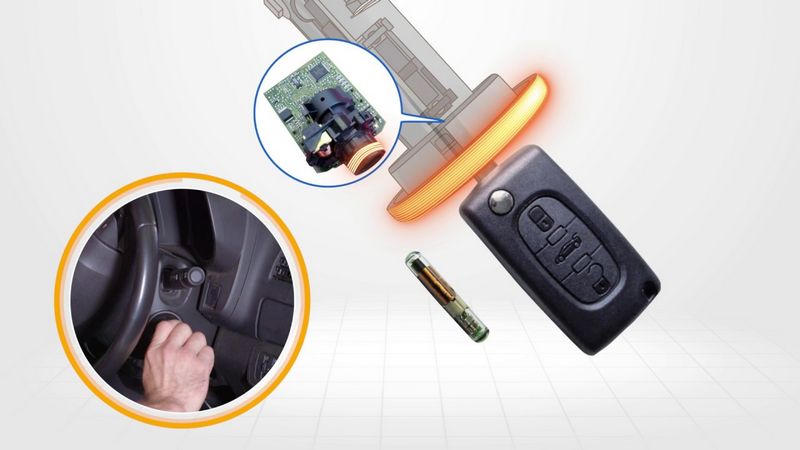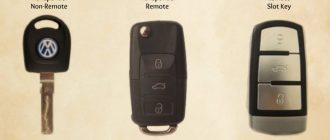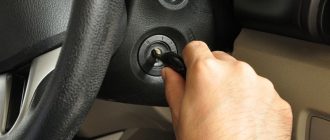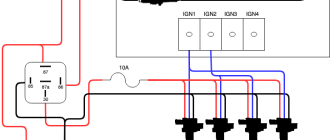
What does an immobilizer do
An immobilizer is a critical security system found in almost every modern car. Its main function is to prevent unauthorized access to the vehicle and protect it from theft. The immobilizer works by disabling the ignition and preventing the engine from starting unless the correct key or key fob is present.
The immobilizer system is designed to provide an extra layer of security for your car. It uses advanced technology to communicate with the engine control unit (ECU) and ensure that only the correct key can activate the ignition and start the engine. This makes it extremely difficult for thieves to hot-wire the vehicle.
One of the key features of an immobilizer is its anti-theft capabilities. By requiring the correct key or key fob, it effectively prevents unauthorized individuals from starting your car and driving away. This not only protects your vehicle but also provides peace of mind, knowing that your car is secure.
In addition to its security benefits, an immobilizer also offers several other advantages. It can help lower your car insurance premiums, as many insurance companies offer discounts for vehicles equipped with anti-theft systems. Furthermore, an immobilizer can increase the resale value of your car, as potential buyers will be attracted to the added security features.
In conclusion, an immobilizer is an essential component of a modern car’s security system. It provides protection against unauthorized access and theft, while also offering benefits such as lower insurance premiums and increased resale value. Investing in a vehicle with an immobilizer is a wise decision that can help ensure the safety and security of your car.
What Does an Immobilizer Do: Key Features and Benefits
An immobilizer is a security device installed in vehicles to prevent unauthorized use or theft. It works by disabling the engine’s ignition system, making it impossible to start the car without the correct key or key fob.
The key features of an immobilizer include:
- Engine Protection: The immobilizer prevents the engine from starting unless the immobilizer system recognizes the correct key signal. This ensures that only authorized users can start the car.
- Anti-Theft System: By immobilizing the engine, the immobilizer acts as an effective deterrent against car theft. Even if a potential thief manages to break into the car, they won’t be able to start the engine without the correct key.
- Key Recognition: The immobilizer system is designed to recognize specific codes transmitted by the key or key fob. If the code doesn’t match, the engine will remain immobilized.
- Enhanced Security: Immobilizers provide an extra layer of security to complement other anti-theft measures such as alarm systems and steering wheel locks. This makes it more difficult for thieves to steal a car.
- Insurance Benefits: Many insurance providers offer lower premiums for vehicles equipped with immobilizers because they significantly reduce the risk of theft. Installing an immobilizer can result in cost savings in the long run.
In conclusion, an immobilizer is an essential component of a car’s anti-theft system. It provides engine protection, acts as a deterrent against theft, recognizes unique key codes, enhances overall security, and can lead to insurance benefits. By preventing unauthorized use or theft, immobilizers play a crucial role in keeping vehicles safe and secure.
Importance of Immobilizers for Vehicle Security
An immobilizer system is a crucial component in modern car security, designed to prevent unauthorized access and theft of vehicles. This system works by electronically disabling the ignition and fuel systems of a vehicle, making it impossible to start or operate without the correct key.
With the increase in car thefts and the advancements in technology, immobilizers have become an essential feature for vehicle security. These systems provide an additional layer of protection against theft and significantly reduce the chances of a car being stolen.
The key benefit of immobilizers is their ability to prevent hot-wiring and unauthorized use of a vehicle. Traditional car theft involves manipulating the ignition and hot-wiring the car to start the engine. However, with an immobilizer, the vehicle’s engine will remain immobilized, even if someone manages to bypass the ignition or steal the car keys.
Immobilizers work by using a transponder chip embedded in the key. This chip emits a unique code that is recognized by the vehicle’s immobilizer system. If the code is not recognized, the ignition and fuel system will not be enabled, preventing the car from starting.
Another advantage of immobilizers is that they are designed to be difficult to bypass. The specific codes emitted by the transponder chip are encrypted and constantly changing, making it extremely challenging for thieves to replicate or hack the system.
Furthermore, immobilizers are a cost-effective solution for vehicle security. Compared to other anti-theft devices or systems, immobilizers are relatively inexpensive to install and maintain. They offer long-lasting protection and can be easily integrated into a vehicle’s existing electrical system.
In conclusion, immobilizers play a crucial role in enhancing vehicle security. Their ability to prevent unauthorized access and immobilize the vehicle’s ignition and fuel systems make them an effective deterrent against theft. With their affordable price and advanced technology, immobilizers are a must-have feature for any car owner concerned about vehicle security.
How Immobilizers Work to Prevent Theft
Immobilizers are an essential security feature for vehicles, designed to prevent theft by unauthorized individuals. This system works by integrating a unique electronic key with the vehicle’s engine and ignition systems.
When the key is inserted into the ignition, the immobilizer system sends a signal to the car’s engine control unit (ECU). The ECU then checks whether the key code matches the code stored in its memory. If the codes match, the ECU allows the engine to start. However, if the codes do not match, the ECU will not allow the engine to start.
This electronic key and immobilizer pairing greatly enhances the security of a vehicle. Without the correct key, the engine cannot be started, even if a thief manages to access the inside of the car or hotwire the ignition.
Additionally, immobilizers use rolling code technology, where the key and the immobilizer system constantly generate and exchange new codes. This makes it highly difficult for thieves to replicate or tamper with the key code, further increasing the security level of the system.
Furthermore, immobilizers also have anti-theft deterrents such as proximity sensors. These sensors can detect if the key is near the vehicle and prevent unauthorized access by locking the doors or sounding an alarm.
In summary, immobilizers work by using an electronic key and an immobilizer system that communicate with the vehicle’s ECU. This communication verifies whether the key code matches, allowing the engine to start. The use of rolling code technology and additional deterrents further enhance the security level, making the car significantly less susceptible to theft.
Understanding the Role of Immobilizer Chips
The security of your vehicle is of utmost importance, and one of the key components that ensures this security is the immobilizer chip. An immobilizer chip is a small electronic device that is inserted into the key of a vehicle. Its main function is to prevent unauthorized access to the vehicle’s engine and ignition system.
The immobilizer chip works by sending a unique code to the vehicle’s engine control unit. This code needs to match the code stored in the vehicle’s immobilizer system in order for the engine to start. Without this code, even if someone manages to physically turn the ignition key, the engine will not start.
This anti-theft feature offers several benefits. Firstly, it provides an additional layer of security to your vehicle, making it more difficult for thieves to hot-wire or start the engine without the proper key. This greatly reduces the risk of car theft.
Secondly, the immobilizer chip effectively cuts off the fuel supply to the engine if an unauthorized key is used. This means that even if someone manages to start the engine, they will only be able to drive for a short distance before the engine shuts off. This feature makes it extremely difficult for thieves to get away with a stolen vehicle.
Furthermore, the immobilizer chip also provides peace of mind for vehicle owners. Knowing that their vehicle is equipped with this advanced security system gives them confidence that their investment is protected against theft.
In conclusion, the immobilizer chip plays a crucial role in ensuring the security of your vehicle. By preventing unauthorized access to the engine and ignition system, it greatly reduces the risk of car theft. Its anti-theft features, including the ability to shut off the engine if an unauthorized key is used, make it an invaluable component in modern vehicle security systems.
Advantages of Immobilizers Compared to Other Security Systems
An immobilizer is a key feature in a vehicle that enhances its security by preventing unauthorized access and theft. Here are the advantages of immobilizers compared to other security systems:
- Enhanced Vehicle Protection: Immobilizers provide a higher level of security compared to traditional car alarm systems. Instead of just sounding an alarm when unauthorized access is detected, immobilizers prevent the engine from starting altogether.
- Effective Theft Deterrent: Immobilizers act as a strong deterrent against vehicle theft. Since the car cannot be started without the correct ignition key or immobilizer code, potential thieves are less likely to target a vehicle equipped with an immobilizer system.
- Difficult to Bypass: Immobilizers are designed to be difficult to bypass or override. The unique electronic code in the key or immobilizer makes it highly unlikely for thieves to start the engine without the correct authorization.
- Convenient Operation: Immobilizers are generally easy to use and operate. Users only need to insert the authorized key or provide the correct immobilizer code to start the vehicle, saving time and effort compared to other security systems.
- Integration with Existing Security Systems: Immobilizers can be integrated with other security systems, such as car alarms or GPS trackers, to provide multiple layers of protection. This combination enhances the overall security of the vehicle and can help in the recovery of stolen cars.
- Insurance Benefits: Many insurance companies offer discounts on premiums for vehicles equipped with immobilizers. This is due to the reduced risk of theft, which lowers the insurance company’s potential liabilities.
In conclusion, an immobilizer offers key advantages compared to other security systems. Its ability to prevent engine starting without authorized access, along with its effectiveness as a theft deterrent, make it a valuable security feature for car owners.
Key Features to Consider When Choosing an Immobilizer
When choosing an immobilizer for your car or vehicle, it’s important to consider a few key features that can enhance its anti-theft capabilities and provide maximum security for your vehicle. Here are some key features to keep in mind:
- Ignition cut-off: Look for an immobilizer that has an ignition cut-off feature. This means that when the immobilizer is active, it will prevent the engine from starting, even with the correct key. This adds an extra layer of security and makes it virtually impossible for thieves to hotwire the car.
- Multiple key support: Check if the immobilizer supports multiple keys. This is especially useful if you have multiple drivers for your car or if you frequently lend your vehicle to others. Make sure that each key is programmed and recognized by the immobilizer.
- Compatibility: Ensure that the immobilizer you choose is compatible with your car’s make and model. Different vehicles may have different immobilizer systems, so it’s important to select one that is designed to work with your specific vehicle.
- Encryption: Look for an immobilizer that uses advanced encryption technology. This ensures that the communication between the key and the immobilizer is secure and cannot be easily compromised or duplicated by potential thieves.
- Integration with existing security systems: If your car already has a security system, look for an immobilizer that can integrate with it. This allows for seamless operation and enhances the overall security of your vehicle.
By considering these key features when choosing an immobilizer, you can ensure that you are getting a reliable and effective anti-theft device for your car or vehicle. Remember, investing in a high-quality immobilizer can greatly reduce the risk of theft and provide you with peace of mind.
Immobilizer Compatibility with Different Car Brands and Models
When it comes to car security, the immobilizer system plays a crucial role in preventing vehicle theft. An immobilizer is an anti-theft device designed to prevent unauthorized access to a vehicle by disabling the engine.
Each car brand and model has its own unique immobilizer system, making it essential to ensure compatibility between the immobilizer and your vehicle. Different car brands use various immobilizer technologies, including transponder keys, immobilizer chips, and encrypted communication between the key and the car’s computer system.
Before purchasing an immobilizer system, it is important to check the compatibility with your specific car brand and model. Most immobilizer manufacturers provide compatibility lists or tools that can help determine if the device is compatible with your vehicle.
Some immobilizer systems are designed to be universal and work with multiple car brands and models. These systems are usually equipped with advanced technology that can bypass the different immobilizer systems used in various vehicles.
Compatibility between the immobilizer and your vehicle is crucial for effective security. Using an incompatible immobilizer may result in the system not recognizing your key, leading to the inability to start the engine or even immobilizing the car itself.
When purchasing an immobilizer system, be sure to carefully read the product description and consult with the manufacturer or seller to ensure compatibility with your car. It is also recommended to have a professional locksmith or a car security specialist install the immobilizer to ensure proper functionality and compatibility.
The Cost-Effectiveness of Installing an Immobilizer
Installing an immobilizer in your car can greatly improve its security and reduce the risk of theft. This anti-theft system is designed to prevent unauthorized use of your vehicle, by disabling the engine’s ignition system.
While the initial cost of installing an immobilizer may seem like an additional expense, it is important to consider the long-term benefits and cost-effectiveness it offers. With an immobilizer, the chances of your car getting stolen decrease significantly, which can ultimately save you from the hefty expenses associated with car theft.
One of the key advantages of an immobilizer is its affordability compared to other security systems. Unlike expensive alarm systems or GPS trackers, an immobilizer offers a cost-effective solution for protecting your vehicle. It is a one-time investment that provides continuous protection without the need for monthly subscriptions or maintenance fees.
Moreover, having an immobilizer installed in your car can also lead to potential savings on your car insurance premiums. Insurance companies often offer discounts to policyholders who have taken steps to enhance the security of their vehicles. By equipping your car with an immobilizer, you demonstrate a proactive approach towards preventing theft, which can result in lower insurance costs.
In addition to the direct cost savings, installing an immobilizer can also save you the inconvenience and stress that comes with a stolen vehicle. Dealing with the aftermath of a stolen car can be time-consuming, expensive, and emotionally draining. An immobilizer acts as a deterrent and can discourage potential thieves from targeting your car in the first place.
Overall, installing an immobilizer in your car not only provides enhanced security but also offers long-term cost-effectiveness. It protects your investment by reducing the risk of theft, potentially lowering your insurance premiums, and saving you from the hassle of dealing with a stolen vehicle. Investing in this anti-theft system is a smart choice that brings peace of mind and financial benefits.
How to Install an Immobilizer: Step-by-Step Guide
An immobilizer is a system that enhances the security of your car by preventing unauthorized access and theft. It works by immobilizing the vehicle’s engine, making it impossible to start without the correct key.
Installing an immobilizer is a relatively straightforward process that can be done in a few simple steps:
Step 1: Gather the necessary materials
Before you begin the installation process, make sure you have all the required materials. This typically includes the immobilizer system itself, a wiring harness, electrical tape, wire connectors, and a set of tools such as screwdrivers and pliers.
Step 2: Locate the ignition wires

Next, you’ll need to locate the ignition wires in your vehicle. These wires are responsible for connecting the key and the ignition switch to the engine. They can usually be found beneath the steering column or in the engine compartment.
Step 3: Connect the immobilizer system
Using the wiring harness and connectors, connect the immobilizer system to the ignition wires. Follow the manufacturer’s instructions for the specific immobilizer system you are installing to ensure proper installation.
Step 4: Test the immobilizer system
Once the immobilizer system is connected, it’s important to test it to make sure it is functioning correctly. Insert the key into the ignition and attempt to start the engine. If the immobilizer system is working properly, the engine should not start without the correct key.
Step 5: Secure and conceal the system
After testing the immobilizer system, secure and conceal it to prevent tampering or theft. This can be done by hiding the system’s wiring and components, such as by taping them to existing wiring or securing them with zip ties.
Step 6: Regularly maintain and update the immobilizer system
It’s important to regularly maintain and update your immobilizer system to ensure optimal performance and security. This can include updating the system’s firmware, checking for any loose connections, and replacing any worn-out components.
Installing an immobilizer in your car is a proactive step towards enhancing its security. By following this step-by-step guide, you can install an immobilizer system and enjoy the peace of mind knowing that your vehicle is protected.
Common Issues and Troubleshooting with Immobilizers
While immobilizers are designed to enhance the security of a vehicle and prevent theft, they can sometimes cause issues that may prevent the ignition and starting of the car. Here are some common problems and troubleshooting tips for immobilizers:
1. Key Detection Issues:
If your car’s immobilizer is not detecting the key properly, it may fail to activate the ignition or start the engine. In such cases, check if the key’s battery is charged and replace it if necessary. Additionally, ensure that the key is inserted correctly and in the designated ignition slot.
2. Faulty Immobilizer Module:
If the immobilizer module itself is malfunctioning, it may prevent the engine from starting even with a valid key. In this case, it is recommended to consult a professional mechanic or your vehicle manufacturer for diagnostics and potential module replacement.
3. Wiring and Connection Problems:
Issues with the wiring and connections between the immobilizer module, ignition, and key can also cause immobilizer-related problems. Check for loose or damaged wires, and ensure that the connections are secure and properly connected. If necessary, consult a professional for repairs and replacements.
4. Key Programming Errors:
When replacing a key or reprogramming an immobilizer system, errors can occur during the programming process. If the key is not properly programmed or synced with the immobilizer, it may not be recognized and lead to starting issues. Double-check the programming instructions and consult the vehicle’s manual or a professional for guidance.
5. Battery and Power Problems:
If the car’s battery is weak or dead, it can affect the immobilizer’s functionality. Ensure that the battery is fully charged and in good condition. Additionally, check the power supply to the immobilizer module and ensure it is connected properly.
Note: It is important to remember that troubleshooting immobilizer issues can vary depending on the vehicle make and model. Consulting the vehicle’s manual or seeking professional assistance is recommended for specific troubleshooting steps and solutions.
The Role of Immobilizers in Reducing Car Insurance Premiums
An immobilizer system is an essential component of a vehicle’s security system. It is designed to prevent unauthorized access and theft by disabling the engine’s ignition. By integrating advanced technology, immobilizers provide an effective anti-theft measure that significantly reduces the risk of car theft. As a result, many insurance companies offer premium discounts for vehicles equipped with immobilizers.
The main function of an immobilizer is to prevent the engine from starting without the correct key or electronic authorization. When the key is inserted into the ignition, the immobilizer system verifies its authenticity. If the key is recognized, the immobilizer allows the engine to start. If an unauthorized key or attempt is detected, the immobilizer will disable the engine, making it impossible for the thief to operate the vehicle.
The presence of an immobilizer greatly enhances the security of a vehicle, making it less attractive to potential thieves. Insurance companies recognize this and often offer lower premiums to owners of vehicles equipped with immobilizers. The reduced risk of theft and the increased chances of recovering the vehicle in case of theft are major factors in determining insurance rates.
Installing an immobilizer in a vehicle not only provides protection against theft but also offers financial benefits. Car owners can save money on their insurance premiums by investing in this small yet powerful security feature. Considering the rising rate of car theft, having an immobilizer installed is a smart choice for every vehicle owner.
Immobilizer Regulations and Compliance Standards
As vehicle theft rates continue to rise, immobilizer systems have become a crucial feature for car manufacturers. To ensure the effectiveness of these anti-theft systems, immobilizer regulations and compliance standards have been put in place.
Immobilizer regulations require car manufacturers to install immobilizer systems in their vehicles. These systems work by securely connecting the engine’s ignition system to the key. Without the correct key, the engine will not start, effectively immobilizing the vehicle and preventing theft.
Compliance standards dictate the minimum requirements for immobilizer systems. They often include regulations regarding encryption and key identification technology. Manufacturers must ensure that their immobilizer systems meet these standards to ensure their vehicles are protected against theft.
Relevant regulations and compliance standards vary by country and region. For example, in the European Union, vehicles must meet the requirements of the European standard EN 50486, which specifies the minimum performance and functionality of immobilizer systems.
By adhering to immobilizer regulations and compliance standards, car manufacturers can provide their customers with peace of mind knowing that their vehicles are protected against theft. These regulations also help authorities in tracking and recovering stolen vehicles since most immobilizer systems provide a unique identification code tied to the key.
In conclusion, immobilizer regulations and compliance standards play a crucial role in ensuring the effectiveness of anti-theft systems in vehicles. They not only protect cars from theft but also aid in vehicle recovery efforts. Car manufacturers must comply with these regulations to offer their customers a secure and reliable driving experience.
Immobilizers and the Future of Vehicle Security
As technology continues to advance, the need for better anti-theft and security systems for vehicles becomes increasingly important. One key advancement in vehicle security is the immobilizer system. An immobilizer is a device that prevents the engine of a car from starting unless the correct key is present, thus preventing unauthorized individuals from driving off with your vehicle.
The immobilizer works by using a microchip embedded within the key. This microchip communicates with the engine’s electronic control unit (ECU), which is responsible for starting and running the vehicle. When the correct key is inserted into the ignition, the ECU recognizes the microchip and allows the engine to start. However, if an unauthorized key is used or no key is present at all, the ECU will not send the signal to start the engine, effectively immobilizing the vehicle.
This advanced security feature offers several benefits. First and foremost, it drastically reduces the chances of your car being stolen. Immobilizers have proven to be highly effective in preventing theft, as thieves are unable to start the engine without the correct key. This not only protects your vehicle, but it also helps to lower insurance premiums, as insurance companies often offer discounts for vehicles equipped with immobilizer systems.
Furthermore, immobilizers are designed to be unobtrusive and hassle-free for the vehicle owner. Once the correct key is inserted and the engine starts, the immobilizer system operates in the background, allowing you to drive your car without any interruptions. This makes it a convenient security feature that does not inconvenience the owner.
As the future of vehicle security continues to evolve, immobilizers are likely to play an even bigger role. With advancements in technology, the immobilizer systems are becoming more sophisticated and harder to bypass, making it increasingly difficult for thieves to steal vehicles. Additionally, as more vehicles come equipped with immobilizer systems, car theft rates are expected to decrease.
In conclusion, immobilizers are a crucial component of modern vehicle security systems. With the ability to prevent unauthorized individuals from starting your car’s engine, these systems provide an effective deterrent against theft. As the technology continues to advance, immobilizer systems are likely to become even more efficient, making vehicles safer and reducing the risk of car theft.
The Benefits of Integrated Immobilizer Systems
Integrated immobilizer systems offer a wide range of benefits to enhance the security and protection of vehicles. These systems work in cooperation with the ignition key, providing an additional layer of anti-theft protection.
One of the key benefits of integrated immobilizer systems is that they prevent unauthorized individuals from starting the engine of a car. This is achieved through the use of a unique electronic code embedded in the key, which needs to be correctly matched with the immobilizer system in order to start the vehicle. Without the correct key, the engine simply cannot be started, providing an effective deterrent against theft.
Furthermore, integrated immobilizer systems offer an added layer of security by preventing hot-wiring attempts. Hot-wiring is a common method used by car thieves to start a vehicle without needing the ignition key. However, with an integrated immobilizer system in place, even if a thief manages to manipulate the ignition wires, the engine will not start without the correct key synchronization, rendering the hot-wiring attempt useless.
Additionally, integrated immobilizer systems offer convenience to vehicle owners. With these systems, there’s no need to install separate anti-theft devices such as steering wheel locks or alarm systems. The immobilizer system itself provides a comprehensive and robust anti-theft solution, minimizing the need for additional security measures. This simplifies the overall security setup and reduces the risk of forgetting to engage or disengage separate anti-theft devices.
Integrated immobilizer systems are also beneficial for car owners when it comes to insurance premiums. Many insurance companies offer discounts for vehicles equipped with immobilizer systems, as they are statistically proven to be more secure and less likely to be stolen. This can result in significant savings on insurance costs, making integrated immobilizer systems not only a security feature but also a financially savvy investment for vehicle owners.
- In summary, the benefits of integrated immobilizer systems include:
- Enhanced security and protection for the vehicle
- Prevention of unauthorized engine starts
- Deterrence against hot-wiring attempts
- Convenience by eliminating the need for additional anti-theft devices
- Potential savings on insurance premiums
Q&A:
What is an immobilizer?
An immobilizer is an electronic security device installed in a vehicle that prevents the engine from starting unless the correct key or key fob is present. It is designed to prevent unauthorized access and theft of the vehicle.
How does an immobilizer work?
An immobilizer works by using a transponder chip embedded in the vehicle’s key or key fob. When the key is inserted into the ignition, the immobilizer system sends a signal to the transponder, which then sends a unique code back to the immobilizer system. If the code matches the one stored in the system, the engine is allowed to start. If not, the engine will not start.
What are the benefits of having an immobilizer?
Having an immobilizer in your vehicle provides several benefits. Firstly, it greatly reduces the risk of theft, as the engine cannot be started without the correct key. This can result in lower insurance premiums. Additionally, immobilizers are difficult to bypass or disable, making it even more challenging for thieves to steal your vehicle. Finally, the presence of an immobilizer can act as a deterrent, as potential thieves are aware that the vehicle is protected.
Are all vehicles equipped with immobilizers?
No, not all vehicles come standard with immobilizers. It depends on the make, model, and year of the vehicle. However, many newer vehicles are equipped with immobilizers as a standard security feature. It is also possible to have an immobilizer installed in older vehicles as an aftermarket option.
Can an immobilizer be bypassed or deactivated?
While it is extremely difficult to bypass or deactivate an immobilizer, it is not impossible. There have been cases where skilled thieves have found ways to disable or bypass immobilizer systems. However, these instances are rare and require specialized knowledge and equipment. For the average thief, the presence of an immobilizer is usually enough to deter theft.






